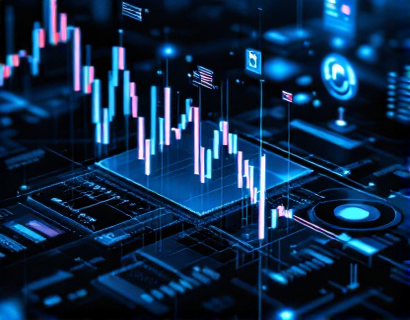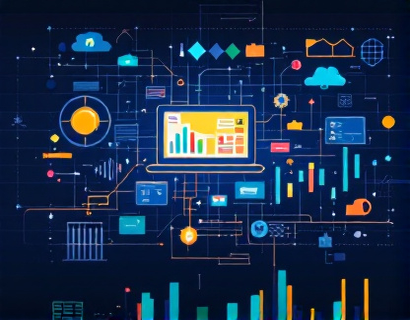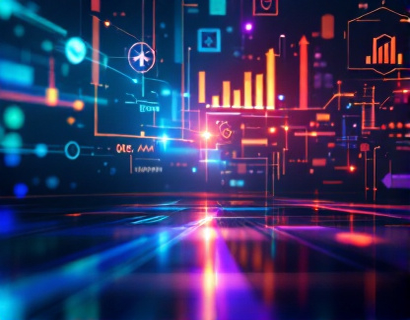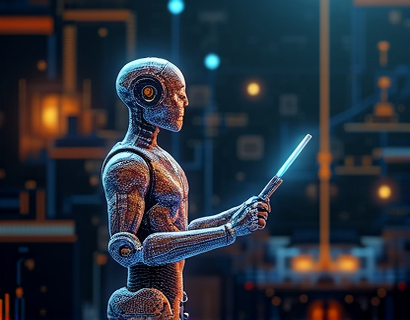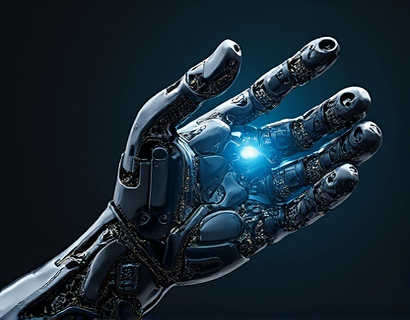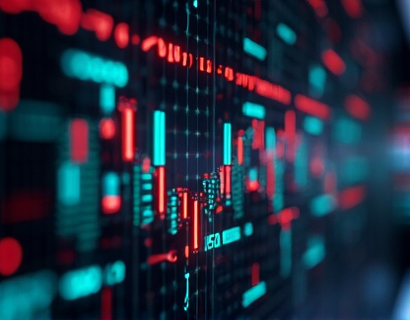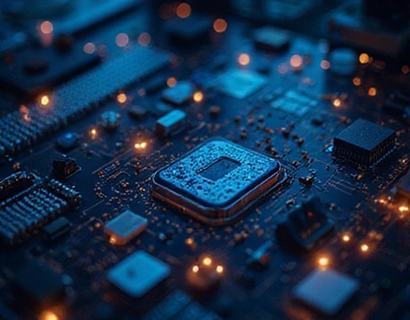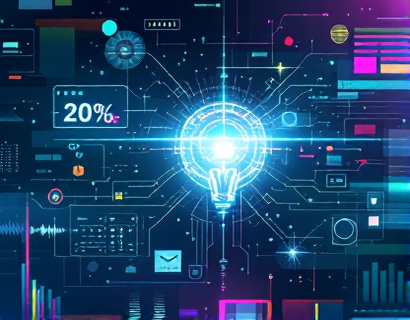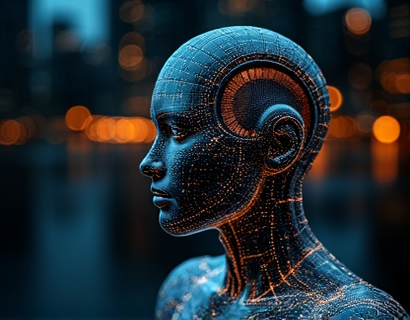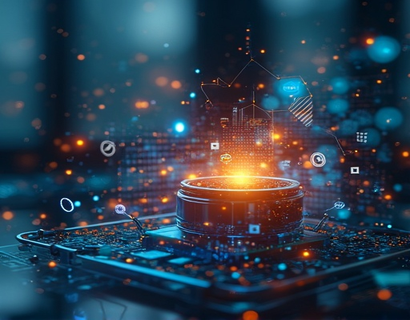Revolutionizing Finance and Tech: The Synergy of AI and Crypto
The intersection of artificial intelligence (AI) and cryptocurrency is ushering in a new era of innovation in both the tech and finance sectors. This convergence is not just a technological curiosity but a transformative force that is redefining how we interact with digital services. By leveraging the strengths of both AI and cryptocurrency, developers and entrepreneurs are creating smart solutions that enhance user experiences, streamline processes, and open up new possibilities for secure and efficient transactions.
The integration of AI into the cryptocurrency ecosystem is multifaceted, impacting areas such as security, trading, customer service, and product development. AI algorithms can analyze vast amounts of data to predict market trends, detect fraudulent activities, and personalize user experiences. This article delves into these innovative applications, exploring how AI and crypto are together reshaping the digital landscape.
Enhanced Security Through AI
One of the most significant benefits of combining AI with cryptocurrency is the enhancement of security measures. Cryptocurrencies, by their nature, are vulnerable to various types of attacks, including hacking, phishing, and smart contract vulnerabilities. AI can play a crucial role in mitigating these risks by implementing advanced threat detection systems.
Machine learning models can be trained to identify patterns and anomalies in transaction data, flagging potential security breaches in real-time. For instance, AI-driven systems can monitor blockchain transactions and detect unusual activity that may indicate a hacking attempt. These systems can automatically trigger alerts and take preventive actions, such as freezing suspicious accounts, thereby minimizing the impact of security incidents.
Moreover, AI can improve the security of private keys and wallet management. Biometric authentication, powered by AI, can provide a more secure and convenient way to access cryptocurrency wallets. Face recognition, fingerprint scanning, and voice recognition are examples of biometric technologies that, when integrated with AI, can offer robust security solutions. This not only protects user assets but also enhances the overall trust in cryptocurrency platforms.
Smart Trading and Investment Decisions
The trading landscape is another area where AI and cryptocurrency are making significant strides. Traditionally, trading in cryptocurrency markets has been characterized by high volatility and rapid price fluctuations. AI can help traders navigate this complexity by providing data-driven insights and automated trading solutions.
AI algorithms can analyze historical price data, market news, social media sentiment, and other relevant factors to predict future price movements. These predictive models can be used to develop automated trading bots that execute trades based on predefined criteria, allowing investors to capitalize on market opportunities with minimal human intervention. This not only increases efficiency but also reduces the emotional bias that often affects human traders.
Furthermore, AI can assist in portfolio management by optimizing asset allocation and risk assessment. By continuously analyzing market conditions and adjusting portfolios accordingly, AI-driven investment tools can help investors achieve better returns while managing risk effectively. This level of sophistication is particularly valuable in the cryptocurrency market, where traditional financial instruments are scarce and market dynamics are highly unpredictable.
Personalized User Experiences
The user experience in the crypto space can be significantly enhanced through AI-powered personalization. Users have diverse needs and preferences, and AI can tailor services to meet these individual requirements. For example, AI chatbots can provide 24/7 customer support, answering queries, guiding users through complex processes, and offering personalized recommendations based on their behavior and preferences.
AI can also analyze user data to create customized dashboards and interfaces that highlight the most relevant information and tools for each user. This personalized approach not only improves user satisfaction but also increases engagement and retention. In the context of cryptocurrency exchanges and wallet services, AI-driven personalization can help users manage their assets more effectively and make informed decisions.
Innovative Product Development
The synergy of AI and cryptocurrency is also driving innovation in product development. Developers are using AI to create smarter and more functional crypto applications and services. For instance, AI can enhance decentralized finance (DeFi) platforms by optimizing lending and borrowing processes, reducing counterparty risk, and improving liquidity management.
Smart contracts, a cornerstone of blockchain technology, can be further fortified with AI. AI can help in the creation and execution of more complex and reliable smart contracts by analyzing vast amounts of data to identify potential vulnerabilities and optimizing contract logic. This ensures that transactions are executed as intended, reducing the risk of errors and fraud.
Additionally, AI can facilitate the development of new crypto-based services, such as AI-powered financial advisors, automated investment platforms, and advanced analytics tools. These innovations not only enhance the functionality of existing services but also open up new markets and use cases for cryptocurrency technologies.
Challenges and Considerations
While the integration of AI and cryptocurrency offers numerous benefits, it also presents several challenges that need to be addressed. One of the primary concerns is the regulatory landscape. The crypto space is still largely unregulated, and the introduction of AI technologies adds another layer of complexity. Regulators must strike a balance between fostering innovation and ensuring consumer protection and market stability.
Another challenge is the technical integration of AI systems with blockchain technology. Blockchain's decentralized and immutable nature can pose challenges for AI models that require centralized data storage and processing. Developers need to design solutions that can operate effectively in a decentralized environment while maintaining the integrity and security of AI algorithms.
Privacy is also a critical issue. AI systems often rely on large datasets to function effectively, which can raise concerns about data privacy and compliance with regulations such as the General Data Protection Regulation (GDPR). Ensuring that user data is handled securely and transparently is essential for building trust and adoption.
Future Prospects
Looking ahead, the future of AI and cryptocurrency is promising. As technology continues to advance, we can expect even more sophisticated applications of AI in the crypto space. One area of potential growth is the development of AI-driven decentralized autonomous organizations (DAOs), which can leverage AI to make collective decision-making more efficient and democratic.
Another exciting possibility is the integration of AI with other emerging technologies, such as the Internet of Things (IoT) and 5G networks. This convergence can lead to the creation of smart financial ecosystems where devices and systems interact seamlessly, enabling real-time transactions and enhanced user experiences.
Moreover, the increasing adoption of AI in crypto can drive broader acceptance and mainstream use of cryptocurrency. As AI-powered services become more user-friendly and accessible, more individuals and businesses are likely to embrace digital currencies, further driving the growth of the crypto market.
In conclusion, the combination of AI and cryptocurrency is revolutionizing the way we approach finance and technology. By enhancing security, enabling smart trading, personalizing user experiences, and driving innovative product development, this synergy is setting new standards in the tech and finance sectors. As the landscape continues to evolve, the potential for smart, integrated digital services is vast, promising a future where finance and technology are more interconnected than ever before.



